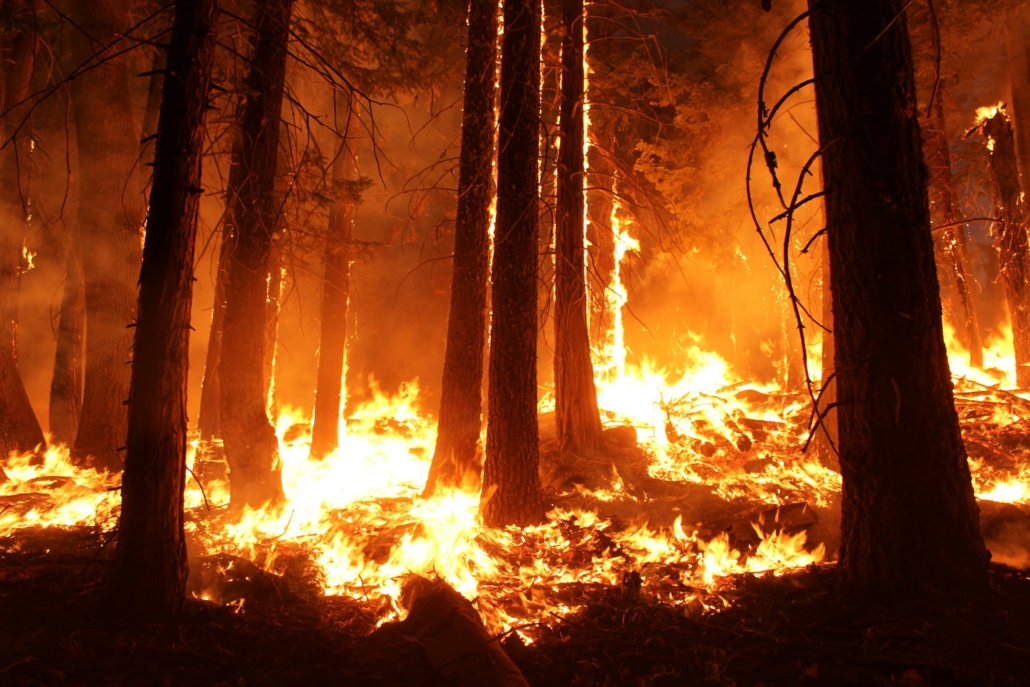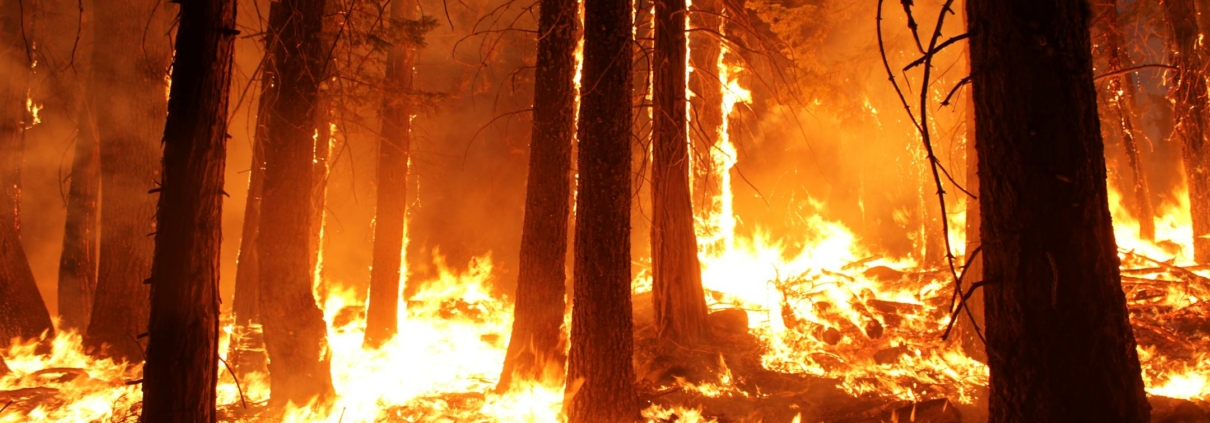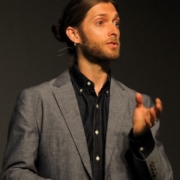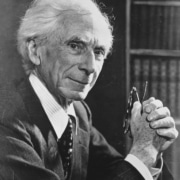A Buddhist Philosopher’s Antidote to Modern Nihilism

In mid-September 2020 as I write, massive wildfires are burning throughout Washington, Oregon, and California, and climate-change scientists are arguing that this is proof, hands down, for climate change. Climate-change skeptics, meanwhile, still doubt whether it’s human-caused or, if it is, to what extent.
Six months prior, George Floyd’s tragic death galvanized the Black Lives Matter movement in support, among other things, of ending police violence against Black people. The movement, in some parts of the country, on social media and behind closed doors, has met with counterclaims—sometimes loud, though often quiet—about how “all lives matter.”
And lest we forget, the coronavirus pandemic has shown the degree to which expert and ordinary persons’ opinions diverge. In May and June, the public discussion concerning how best for the country to proceed was framed in terms of the relative weights assigned to public health and economic welfare. Conservatives, urging states to re-open their economies, were pitted against progressives, who prioritized public health over economic well-being. For their part, libertarians regarded progressive governors’ orders to keep businesses closed as infringements on personal liberties.
Contemplation, as I understand it, is a heart- and mind-open inquiry into the most basic matters of existence.
What is evident here, I submit, is our groundlessness, which Alasdair MacIntyre expertly exposed in After Virtue, a masterpiece of moral philosophy. It’s been 40 years since the book’s publication, and not much has changed. MacIntyre began his inquiry into the fragmentation of our ethical life by observing what may appear, at first glance, to be run-of-the-mill moral disagreements obtaining in three separate cases—war, abortion, and political philosophies. He showed in each case that our moral disagreements in modernity are at once interminable and shrill. His hypothesis is that their interminability and shrillness are born of a culture-wide, intractable kind of moral incoherence.
To get a visceral sense of this incoherence, I find it helpful to liken it to a dream. In this dream, you see that you’re somewhere you’ve never been before, the landscape you survey appearing unrecognizable to you. Only in the next breath, it strikes you as if, no, this landscape is all too familiar. Either way, it’s clear to you that you don’t feel at home here (wherever “here” is), and you have the intuition, one that comes and goes, that you don’t know what home is or where it is or, really, how it is.
Looking down, you’re shocked, though only slightly, as you notice that there is no ground beneath your feet. How long have you been floating here, floating and wandering? In this instant, you seize on the thought that you can’t seem to get your bearings nor do you know what “getting one’s bearings” even means.
“Am I losing it?” you hear yourself, or someone else, saying. The question echoes for a few beats, then fades away. Is all this horrifying? Terrifying? No, not quite. Something less or other.
When you wake up, the strangeness isn’t brought to an end, for you can see no difference between the dream state and the waking state. No firm ground underfoot. No home to speak of. No sense of direction.
You’re not alone.
Our First Meta-Crisis: Knowledge of Groundlessness
This knowledge of our moral groundlessness is the first aspect of a meta-crisis I believe we’re suffering. To see this, imagine, during and since the Protestant Reformation, our ethical life slowly shattering into shards that themselves fly apart, splintering and proliferating, splintering and proliferating in turn. Doing so will give you a stark image of what Brad Gregory, in The Unintended Reformation, aptly terms “hyperpluralism.” The modern condition is indeed hyper-pluralistic. Think, for instance, of the birth of dieting as well as the explosion in diets in recent years: omnivorous, pescatarian, vegan, fruitarian, raw food, Whole30, Paleo, ketogenic, mediterranean, carnivore, blood type, South Beach, macrobiotic, Ornish, even breatharian.
Meanwhile, imagine that as any shared conception of “the good”—or what a desirable and ethical life looks like—has become increasingly opaque, a series of surrogate conceptions of the good life have come to fill their place: hedonism, careerism, possessive, insular love, and secular spirituality.
Put the two images together. What you get is hyperpluralism fetishizing the primacy of human agency, paired with surrogate conceptions of the good life, that proffer us derogated substitutes of eudaimonia, or the life well-lived. Both hide from us what is sorely missing: a shared vision of the good.
Parsing Aristotle’s notion of a telos, MacIntyre writes, “Every activity, every enquiry, every practice aims at some good; for by ‘the good’ or ‘a good’ we mean that at which human beings characteristically aim.”
But what is that at which our lives should be characteristically and ultimately aimed? While we may not typically think to ask such a question, it is one of the most vital questions to consider.
This meta-crisis has to do with our inability to know on what basis we shall live our lives, on our own and most especially together in the form of a We. Thus the meta-crisis only arises when we come to metacognitive awareness of this long-standing sense of groundlessness.
Subscribe to the Ethical Systems newsletter
Our Second Meta-Crisis: Knowledge of Homelessness
A certain homelessness can be discovered by observing the downstream consequences of three reigning doctrines on offer in a modern-meets-postmodern worldview: physicalism, humanism, and secularism.
Physicalism states that everything is physical, humanism holds that only human-agent-centered concerns and concerns about the human matter, and secularism insists both that there is no eternity and that only the temporal world of ordinary sense experience exists. Embracing this picture are “secular monks,” like Twitter’s Jack Dorsey, acting in the physical, profane, temporally-bound world.
The one who lives wisely is, by turns, perceptive, thoughtful, emotionally attuned, considerate, graceful, and, above all, whole.
The existential implications of this deeply ingrained worldview of reality could be no more evident:
- For us, time is and must be scarce. Thus, it occasions what I have elsewhere called “time famine.”
- For us, there can be no denying, save on pain of delusion or forgetfulness, our anxiety about death.
- For us, nihilism, rarely directly spoken of, is nonetheless ever-pervasive: a general malaise, a sense of pointlessness, meaninglessness, and even helplessness, abounds. In support of a similar thesis, Christopher Maestropietro and John Vervaeke point to various symptoms of the “meaning crisis,” including “the death of despair,” “the loss of communitas,” “the rise of addiction,” and “idolatries of the sacred.”
- And for us, this picture of reality is all too flat inasmuch as it doesn’t enable us to explore dimensions of reality—the underworld for Parminedes, the ascent to the One in Plotinus—evident in other, pre-disenchanted, contemplative cosmologies.
What I’m describing is a quality akin to “being stuck,” feeling “closed in,” not catching a full, easy breath, and, above all, feeling ever restless. Those deeply attuned to the experience of time famine, existential anxiety, nihilism, and the “immanent frame” (about which Charles Taylor writes in A Secular Age) quite often feel homeless, at home neither in the world nor in their own skin.
We’re groundless in the specific sense in which most of us have no shared vision of the good as well as no way of converging on such a shared vision. And we are homeless inasmuch as we can’t seem to come to rest in our being.
Notice how these two aspects mutually reinforce each other: without a grasp of the good, I have trouble coming into immediate contact with the real; without feeling the presence of the real, I cannot seem to orient myself with respect to the good. In a sense, I feel as if I’ve forgotten precious things just beyond recollection and thus beyond the bounds of expression.
It is this Socratic understanding—as raw as it is real—that, I urge, is the humble opening we need in order to give ourselves up completely to contemplation of ultimate things as well as to living, vibrating wisdom.
Beyond Our Meta-Crisis: Contemplation and Living Wisdom
My proposal is two-fold: first, that we contemplate ultimate things; and, second, that we embark on the path of living wisdom.
What has truly been missing throughout much of modernity has been a shared commitment to living wisdom. “But why,” one might ask, “should I care about living wisdom? Why care about any of this stuff about groundlessness and homelessness?”
See right here, see in this expression of nihilism how modern culture exudes carelessness. Because we’ve been groundless and homeless for so long, we haven’t learned how to care deeply.
To care deeply, as Socrates shows us in Plato’s Apology, is to be willing to die for what is truly worth caring about. Living wisdom, in this sense, just is caring deeply about contemplated ultimate things with such depth, earnestness, and devotion that one’s very being finally becomes a radiant expression of, the very vibration of care for all beings.
Contemplation, as I understand it, is a heart- and mind-open inquiry into the most basic matters of existence. This definition is meant to underscore how the questioner is not merely questioning some other or object “out there” but is also, and at the same time, implicating oneself in the question. I call this synthesis of “matters of ultimate concern” and “what matters to, while implicating, me” the existential.
Thus, contemplation so understood is not merely of an intellectual nature but, in truth, is existential through and through. As such, it requires our entire being, asking that we give all of ourselves over completely to the inquiry. In Rinzai Zen practice, for instance, to inquire “exhaustively” into the great matter of life and death is to pour oneself so entirely into the inquiry that there can be nothing else that has greater stakes than this koan, or life-enigma. With all that one has, one must get to the very bottom of this koan, which is also the very bottom of one’s being.
By “living wisdom,” I mean virtuous conduct flowing directly from the deepest and fullest contemplative understanding of the good and the real. The one who lives wisely is, by turns, perceptive, thoughtful, emotionally attuned, considerate, graceful, and, above all, whole.
If living wisdom, just insofar as it joins together the good and the real in one’s very heart, doesn’t matter, what really could?
Andrew Taggart is a practical philosopher and a Rinzai Zen Buddhist.
Lead image: U.S. Forest Service / Mike McMillan






